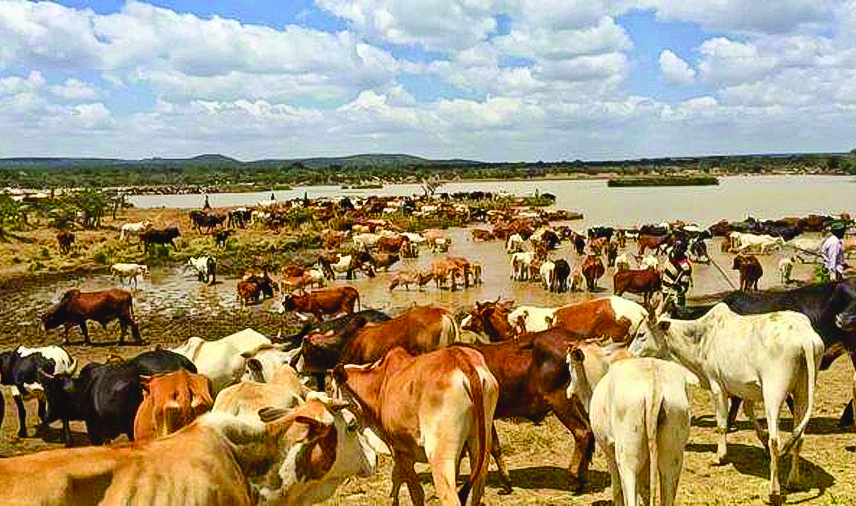What the British mainstream media is reporting about the current land invasions in northern Kenya is not an accurate portrait of the situation. Some British commentators have been disloyal to a region that has offered them a comfortable lifestyle and luxurious holidays, by reporting sensational headlines suggesting the end of the white man in Africa. What is really happening is change.
The drought in the north of Kenya has politically instigated tribesmen and livestock heading south; the drought is giving an excuse to the political opposition to make promises of land that will be bequeathed in exchange for votes cast in the August election. On a new and dramatic scale, opportunistic young herdsmen and their cattle, urged on by their tribal leaders, have started to look for sustenance on other people’s land. These young herdsmen are from warrior tribes and are, unfortunately, armed with weapons sourced from collapsing previous regimes in Sudan and Somalia, which makes fresh pastures easy to acquire. They are unwilling to negotiate, they kill those that stand in their way and they are threatening the status quo of land ownership for all of those living in the invaded areas, not just the large landowners but also the indigenous peoples who have curated the land in a sustainable manner.
Largely responsiblefor this predicament is Kenya’s exponential population growth, today there are 50 million Kenyans and likely to be 100 million in 20 years. The current equation between mankind, his wealth represented by livestock and the desire for wildlife conservation is unsustainable. The point of conservation efforts and the benefits of tourism are not understood by reckless and irreverent warriors with thousands of cattle, many of which may be the embodiment of black money stashed in livestock by corrupt politicians. The change is that some forward-thinking traditional settlers are now acting in partnership with their local community and looking for long-term solutions to end the conflicting interests of mankind, politics, corruption and wildlife.
The drought in the north of Kenya has politically instigated tribesmen and livestock heading south; the drought is giving an excuse to the political opposition to make promises of land that will bequeathed in exchange for votes cast in the August election.
The point is that those who have conducted their enterprise with self-interest are a relic of the past. Their contribution must go beyond a few schools, crafts shops and medical supplies. To avoid the inevitable land invasions of the future and their migration towards Nairobi, the conservancies and ranches must develop meaningful collaborations that offer sustainable development, opportunities, choices, jobs and future prosperity to the local community in the rural areas.
The President, devolved Governors, environmentalists and private enterprise, all have a part to play in creating such an alliance, as a champion of such a coalition has yet to emerge.

